Document Type
Case Study
Publication Date
2019
Interviewee
Scott Nagel, Paul de Barros
Editor
Susan Kunimatsu
Abstract
In the late 1960’s and early 1970’s, the U.S. music scene saw a confluence of two trends: a rising interest in traditional folk music and the popularity of outdoor music festivals. The National Folk Festival Association (NFFA) and the National Park Service (NPS) collaborated to create several regional folk music festivals including the Northwest Folklife Festival in Seattle. The festival’s founding in 1972 coincided with a fertile period in the development of local cultural institutions following the 1962 World’s Fair. Perceived by some as a golden age of the arts in Seattle, many organizations founded in that period, including Folklife, were fueled by an anti-hierarchical, anti-commercial attitude that capitalized on the Northwest’s geographic isolation from east coast arts hubs. An independent nonprofit organization since 1984, the Northwest Folklife Festival has grown and evolved, but remains resolutely populist: a free outdoor festival that continues to focus on the traditional arts of a wide circle of ethnic and cultural communities reflecting the demographic change and growth of Seattle in the ensuing five decades.
Organization or Event
Northwest Folklife Festival
Form of Entity
Nonprofit
Area of Activity
Arts Presenter/Distributor (any artistic discipline), Arts in Community Development
Artistic Discipline
Music, Dance, Crafts, Folk/Traditional/Heritage Arts
Recommended Citation
Antolin, Maris, "The Northwest Folklife Festival: Preserving Seattle’s Golden Age of Arts and Culture" (2019). Northwest Folklife Festival. 1.
https://scholarworks.seattleu.edu/northwest-folklife-festival/1


